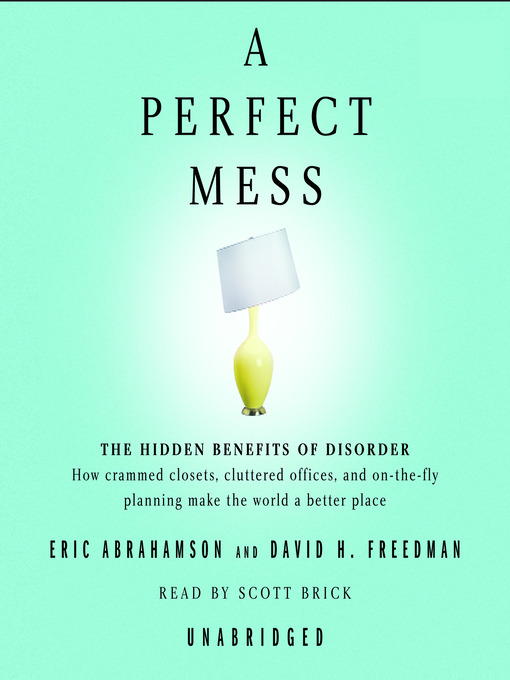
With a spectacular array of true stories and case studies of the hidden benefits of mess, A PERFECT MESS overturns the accepted wisdom that tight schedules, organization, neatness, and consistency are the keys to success. Drawing on examples from business, parenting, cooking, the war on terrorism, retail, and even the meteoric career of Arnold Schwarzenegger, coauthors Abrahamson and Freedman demonstrate that moderately messy systems use resources more efficiently, yield better solutions, and are harder to break than neat ones.
Applying this idea on scales both large (government, society) and small (desktops, garages), A PERFECT MESS uncovers all the ways messiness can trump neatness, and will help you assess the right amount of disorder for any system. Whether it’s your company’s management plan or your hallway closet that bedevils you, this book will show you why to say yes to mess.
-
Creators
-
Publisher
-
Release date
January 9, 2007 -
Formats
-
OverDrive Listen audiobook
- ISBN: 9781415936832
- File size: 309263 KB
- Duration: 10:44:17
-
-
Languages
- English
-
Reviews

Loading
Formats
- OverDrive Listen audiobook
Languages
- English
Why is availability limited?
×Availability can change throughout the month based on the library's budget. You can still place a hold on the title, and your hold will be automatically filled as soon as the title is available again.
The Kindle Book format for this title is not supported on:
×Read-along ebook
×The OverDrive Read format of this ebook has professional narration that plays while you read in your browser. Learn more here.